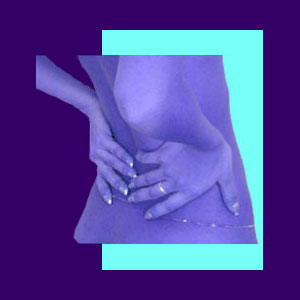
Back muscle weakness is a common symptom associated with a variety of back muscle and spinal pathologies. Muscular weakness is often accompanied by other symptoms, such as tingling, numbness or pain. Weakness describes the inability to perform up to normal individual performance standards for a particular muscle or anatomical region. It is important to understand the reasons for muscular weakness if you are to have any real hope of curing the condition and avoiding the common occurrence of unsuccessful treatment which plagues so many fellow patients.
This report examines the origins of muscular weakness in the back and what can be done to reverse the process.
Back Muscle Weakness Causes
Acute muscular weakness is most commonly the result of a muscular injury. When muscle fibers are damaged, the integrity of the muscle is compromised and performance is reduced. This is a normal process and usually nothing to worry about. Most back muscle pain conditions will resolve without treatment in a matter of days or weeks.
Chronic muscular weakness can be caused by ongoing ischemic processes, which can be a real problem for any patient. Oxygen deprivation back pain is rarely correctly diagnosed and can last for years or even decades.
It is possible for muscular weakness to be the direct result of a pinched nerve condition in the spine. However, this diagnosis is made far more often than it actually occurs. Many times the root cause of the suspected nerve constriction, such as a herniated disc, is merely a back pain scapegoat and is completely innocent of causing any symptoms whatsoever.
Treatment of Weak Back Muscles
Most muscular pain conditions do not usually require any special treatment. Some ice and heat and maybe some OTC pain relievers should be sufficient to get most patients on the road to recovery. Remember that muscle pain might last for a few weeks, so do not be alarmed if the pain does not end right away.
Actual nerve compression conditions can also generally resolve by themselves, although some may require professional or even surgical care.
For chronic pinched nerve concerns, spinal decompression might be a good treatment selection, since it demonstrates excellent results for treating some types of spinal issues and allows the patient to avoid surgical correction. In other cases, back surgery may the ideal solution, but even in these circumstances, patients should explore their procedural options carefully.
Back Muscle Weakness Solutions
If you are aware of a muscular strain or sprain in your back and are experiencing weakness and related symptoms, do not fear. Your symptoms are most likely the result of the body’s defense mechanisms which are designed to protect the injured region. Be careful with your back and try to rehabilitate the muscles using common sense and gentle, but progressive activity.
If you have long-term weakness and have a diagnosis, treatment should bring about relief. If not, then the theory of the causative mechanism may be flawed. Misdiagnosis is unfortunately hugely common. Remember that structural and nonstructural processes can both cause chronic weakness in the back and limbs.
Always research all possible sources of symptoms and consider consulting with a spinal neurologist. This type of doctor is best prepared to correctly identify the source of neurological deficits and dysfunction, helping to put you on the right path towards effective therapy.




